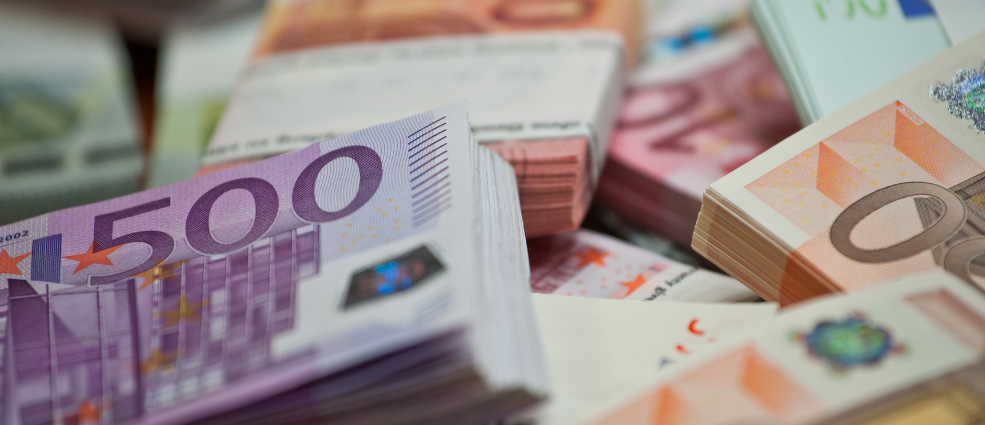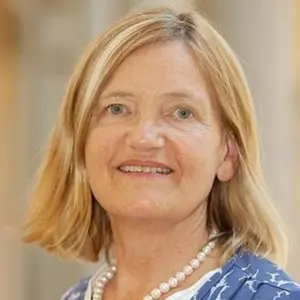Install this application on your home screen for quick and easy access when you’re on the go.
Just tap then “Add to Home Screen”

Chair – Thomas Christiansen
Editor of the Journal of European Integration, Professor of Political Science and European Integration at LUISS Università Guido Carli, Rome, Italy
Speaker – Brigid Laffan
European University Institute and University College Dublin
On the occasion of its 40th anniversary in 2018, the Journal of European Integration inaugurated the practice of inviting a leading scholar to give the JEI Annual Lecture. Since then, speakers have included Nathalie Tocci (IAI Rome, 2018), Kalypso Nicolaidis (Oxford University, 2019), Sven Biscop (Bruges, 2020), Vivien A. Schmidt (Rome, 2021), R. Daniel Kelemen (Rome, 2022), and Mitchell Orenstein (Pittsburgh, 2023).
The 2024 instalment will be delivered by Emeritus Professor Brigid Laffan, as part of the 12th Biennial Conference of our Standing Group on the European Union (SGEU) in Lisbon.
The role of public finance in the dynamic of European integration is under-researched. Conceptualisations of the EU as a regulatory state and the dominance of the Brussels effect have obscured the significance of distributive/redistributive bargains at each stage in the evolution of the European Union.
The lecture will analyse the various ways in which public finance is deployed as part of EU collective power, defined as the ‘power to get things done’. In addition to the EU budget which remains small in the context of EU GNI, the lecture will analyse the growth of financial instruments developed within and beyond the treaties to augment the financial power of the budget.
The succession of crises that beset the EU from 2009 onwards, particularly the Eurozone crisis, the pandemic and Ukraine, generated an array of financial instruments and new funds as responses to acute challenges. Notwithstanding the establishment of the Recovery and Resilience (RRF) in 2020 and the breaking of a budgetary taboo, the role of public finance in integration remains heavily contested.
 Brigid Laffan is Emeritus Professor at the European University Institute and University College Dublin.
Brigid Laffan is Emeritus Professor at the European University Institute and University College Dublin.
She was Director and Professor at the Robert Schuman Centre for Advanced Studies and Director of the Global Governance Programme and the European Governance and Politics Programme at the European University Institute (EUI), Florence until her retirement in August 2021.
In 2011, she was the recipient of the Mattei Dogan Foundation Prize for distinguished achievements in the field of political sociology. In 2021, she was honoured with the Research Award of the Alexander von Humboldt Stiftung for her lifetime research activities. In 2022, she was nominated International Honorary Member of the American Academy of Arts and Sciences.
Previously, Brigid was Professor of European Politics at the School of Politics and International Relations (SPIRe) University College Dublin (UCD) and was Vice-President of UCD and Principal of the College of Human Sciences from 2004 to 2011. She was also the founding director of the Dublin European Institute UCD from 1999 and in March 2004 she was elected as a member of the Royal Irish Academy. In November 2018, she was ranked among the women who shaped Europe by POLITICO and was awarded by the University of Limerick Alumni Association with its highest honour.
Since retiring from the European University Institute, Brigid has continued to work on large EU collaborative research projects. In 2023, she was appointed President of the European Policy Centre (EPC) in Brussels and to the Board of the Economic and Social Research Council (ESRI) Dublin.
She has published ten books and written countless journal articles and book chapters. She is also the recipient of awards as illustrious as the Ordre national du Mérite – an accolade conferred by the President of France. Her latest book was a co-authored volume with Stefan Telle (2023). Her scholarship has been recognised by lifetime achievement awards from the UK Association for Contemporary Studies (UACES) in 2014 and the US European Union Studies Association (EUSA) in 2023. In February 2024, Brigid was awarded the 2024 RIA Medal in the Social Sciences, the highest academic accolade in Ireland.
Established in 1978, the Journal of European Integration is a leading journal that publishes scholarly work from a variety of disciplinary or multidisciplinary perspectives, ranging from political science and political economy to public administration, law, history, sociology and cultural studies, on all aspects of the European integration process. European integration is broadly understood as a pan-European process rather than merely the European Union, though the majority of JEI contributions might be devoted to the latter.
The journal also publishes comparative studies of federalism, regional integration and other forms of multilateral cooperation, as well as articles dealing with the European Union’s external relations and its global role, be it concerning economic, diplomatic or security relations.
The main purpose of the Journal of European Integration is to serve a broad readership which implies that articles should be of a wider relevance rather than of a highly technical or narrow nature. The emphasis should be on scholarly work and should provide, in particular, analysis rather than description or assertion.
The JEI Editorial team consists of Editors: Adding square bullet points: